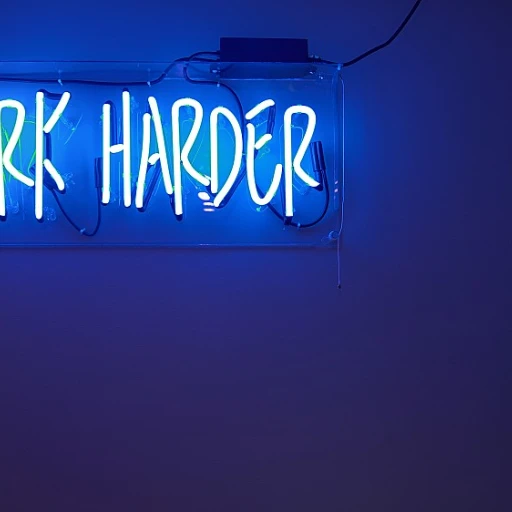Understanding the Importance of Morale in HR Tech
Recognizing the Vital Role of Employee Morale in HR Tech
Understanding the importance of morale in the modern workplace is essential for any business striving to maintain a competitive edge. A positive workplace morale can be the difference between a vibrant, productive atmosphere and a disengaged, underperforming environment. Employees who feel valued and appreciated are more likely to contribute positively, enhancing overall company culture.
HR technology plays a crucial role in monitoring and boosting employee morale. With the integration of tech-driven tools, companies can more efficiently engage with their workforce, fostering a sense of community and improving mental health and overall staff morale. By implementing strategies such as gamification and personalized recognition programs, businesses can transform mundane tasks into engaging activities, making work fun and enjoyable.
A focus on employee engagement is more than just a buzzword—it’s a necessity. Offering flexible work arrangements not only enhances morale but also supports work-life balance, which is increasingly important in today's fast-paced work environment. A commitment to creating a positive work atmosphere where employees feel appreciated can significantly boost team morale, leading to an increase in productivity and job satisfaction. For further insights, consider exploring how enhancing employee benefits can also contribute to raising workplace morale.
Gamification: Turning Work into Play
Transforming Routine Into an Exciting Experience
Workplace morale is not just a feel-good factor; it plays a pivotal role in driving productivity. One innovative way to enhance employee morale is by integrating gamification elements into the workflow. By transforming routine tasks into fun and engaging activities, employees feel more motivated and appreciated. Introducing game mechanics into work tasks can stimulate excitement and promote enthusiasm. For instance, you can turn performance metrics into a scoring system or create leaderboards for team challenges. Awarding badges or rewards for achieving specific milestones can serve as continual motivation, encouraging employees to engage more deeply with their work. This not only enhances employee morale but also strengthens team bonding and alignment towards common goals. Small, everyday challenges or quizzes related to the company's culture and values can also serve as great morale boosters. These activities create a sense of community and competition that energizes team members, fostering a positive and lively work environment. Employers should consider the mental health impacts of work routines. Games and fun activities provide a break from the usual grind, helping employees recharge and maintain a healthy work life balance. By acknowledging and incorporating play as a vital part of the workday, companies can effectively boost morale and contribute to the well-being of their employees. For more practical insights on integrating fun into work routines, you might want to explore how to craft the perfect welcome gift for new employees, which can also play a role in gamifying new employee introductions and engagements.Virtual Team Building Activities
Nurturing Connections in Virtual Workspaces
In today's increasingly remote work environment, virtual team building activities have emerged as a vital tool for fostering employee morale and engagement. These activities offer a sense of community, ensuring that team members feel connected and valued, even when they aren't sharing the same physical space. For companies striving to create a robust workplace culture, incorporating virtual team building can be a transformative morale booster. One effective way to boost morale is by organizing online games or challenges that turn work into a fun activity. Virtual escape rooms, trivia quizzes, and collaborative online projects not only encourage team bonding but also help employees destress and develop a positive association with their work environment. These experiences can make a normal workday feel more special, ultimately leading to more committed and enthusiastic employees. In tandem with building activities, regular virtual catch-ups, such as coffee breaks or "water cooler" chats, can maintain strong interpersonal relationships. By fostering open dialogue, team members can share more about their personal lives, enhancing empathy and understanding across the team. This approach ultimately supports a lively company culture where every employee feels heard and appreciated. It's not just about adding new activities to the calendar; it's about cultivating meaningful interactions that make team members feel valued and appreciated. Virtual team building for small groups can be incredibly impactful, serving as a critical morale booster that nurtures employee engagement and strengthens team morale. For more ideas on building company culture through thoughtful gestures, check out this guide to crafting the perfect holiday message for your team.Personalized Recognition Programs
Recognition with a Personal Touch
In the modern workplace, personalized recognition programs serve as a potent morale booster. When employees feel appreciated and valued, they become more engaged and productive, thereby enhancing the overall workplace culture. Personalization in recognition ensures that each team member is acknowledged in a manner that resonates with them, contributing significantly to a sense of community within the office.
Leveraging technology, companies can create tailored systems for employee recognition. These platforms can track achievements and enable managers to express appreciation uniquely. By customizing the approach—be it through verbal praise, awards, or flexible perks—employees feel a deeper connection to the work environment.
Not only does this strategy boost employee morale, but it also acts as a catalyst for building team morale. Acknowledging both individual and team accomplishments fosters a spirit of camaraderie and collective success. As a result, the staff morale experiences a noticeable boost, enhancing the workplace atmosphere.
Furthermore, regular recognition can help mitigate issues related to employee mental health by instilling a positive and supportive company culture. This aligns with the broader goal of building a work environment that supports work-life balance, ensuring employees feel motivated and engaged on a day-to-day basis.
Flexible Work Arrangements
Nurturing a Holistic Modern Work Culture
In today's dynamic workplace, flexible work arrangements have become a pivotal aspect of boosting employee morale and engagement. More than just a perk, they serve as a morale booster, enhancing the mental health and work life balance of employees by enabling them to tailor their schedules to suit their personal and professional lives. For employees, the ability to work from home or choose flexible hours speaks volumes about company culture. It communicates trust and appreciation, allowing employees to feel valued for their expertise and contributions. In turn, this fosters a strong sense of community and dedication among team members. From a business perspective, the benefits of such flexibility are manifold. Not only do employees feel more engaged and motivated, but companies can also experience reduced overhead costs as well as increased productivity. The ripple effect of such arrangements can uplift the entire work environment, creating a culture of trust and open communication where team morale thrives. Implementing flexible work arrangements necessitates a keen understanding of employee needs. It's not a one-size-fits-all solution; rather, it should be tailored to fit the company's operations while meeting the diverse needs of its staff. Offering part-time options, compressed work weeks, or even remote work opportunities can be part of your strategy. Small steps towards flexible arrangements can lead the way to big morale boosters. By listening to feedback and continuously fine-tuning these arrangements, companies can create a supportive and engaging environment that encourages employee loyalty and workplace happiness.Feedback and Communication Platforms
In today's fast-paced work environment, maintaining open and effective communication is pivotal not just for operational effectiveness but also for boosting team morale. Feedback and communication platforms play an essential role in this dynamic, acting as vital channels through which employees can voice concerns, share achievements, and receive appreciation.
When staff members feel heard and valued, they are more likely to engage with their tasks enthusiastically and contribute to problem-solving, which reinforces a sense of community within the company. Such platforms facilitate regular check-ins where employees can express ideas freely, aiding in building a culture of transparency and trust within the workplace.
Leveraging Technology for Instant Feedback
Utilizing technology to streamline this process makes it easier for managers to provide immediate feedback, acknowledge accomplishments, and recognize team members' hard work. This kind of timely appreciation is a morale booster that enhances employee engagement by making employees feel appreciated and valued, turning everyday work into a sense of achievement.
Moreover, these platforms can be configured to highlight milestones and small victories, boosting employee morale day by day. This continuous loop of interaction cultivates a positive work environment, promoting a culture where every contribution is recognized.
Embedding Communication in the Company Culture
Establishing these platforms as a core part of company culture ensures that feedback is not viewed merely as a periodic task but as an integral part of day-to-day operations. When feedback is seamlessly integrated into everyday work life, it assists with team building and strengthens team morale.
Moreover, with consistent engagement, employees tend to experience less stress, resulting in better mental health and an improved work-life balance. This helps in creating a conducive environment for continuous learning and collaboration, which is fundamental in creating a resilient and motivated workforce. In essence, an effective feedback mechanism is a robust morale booster that contributes significantly to boosting overall staff morale.













